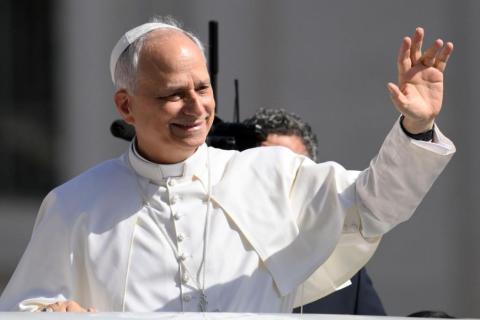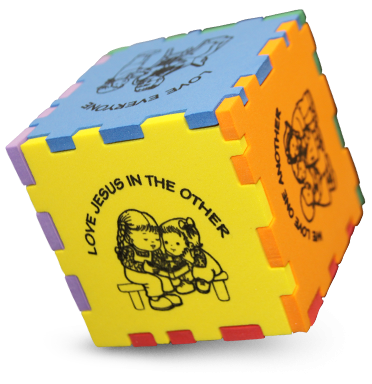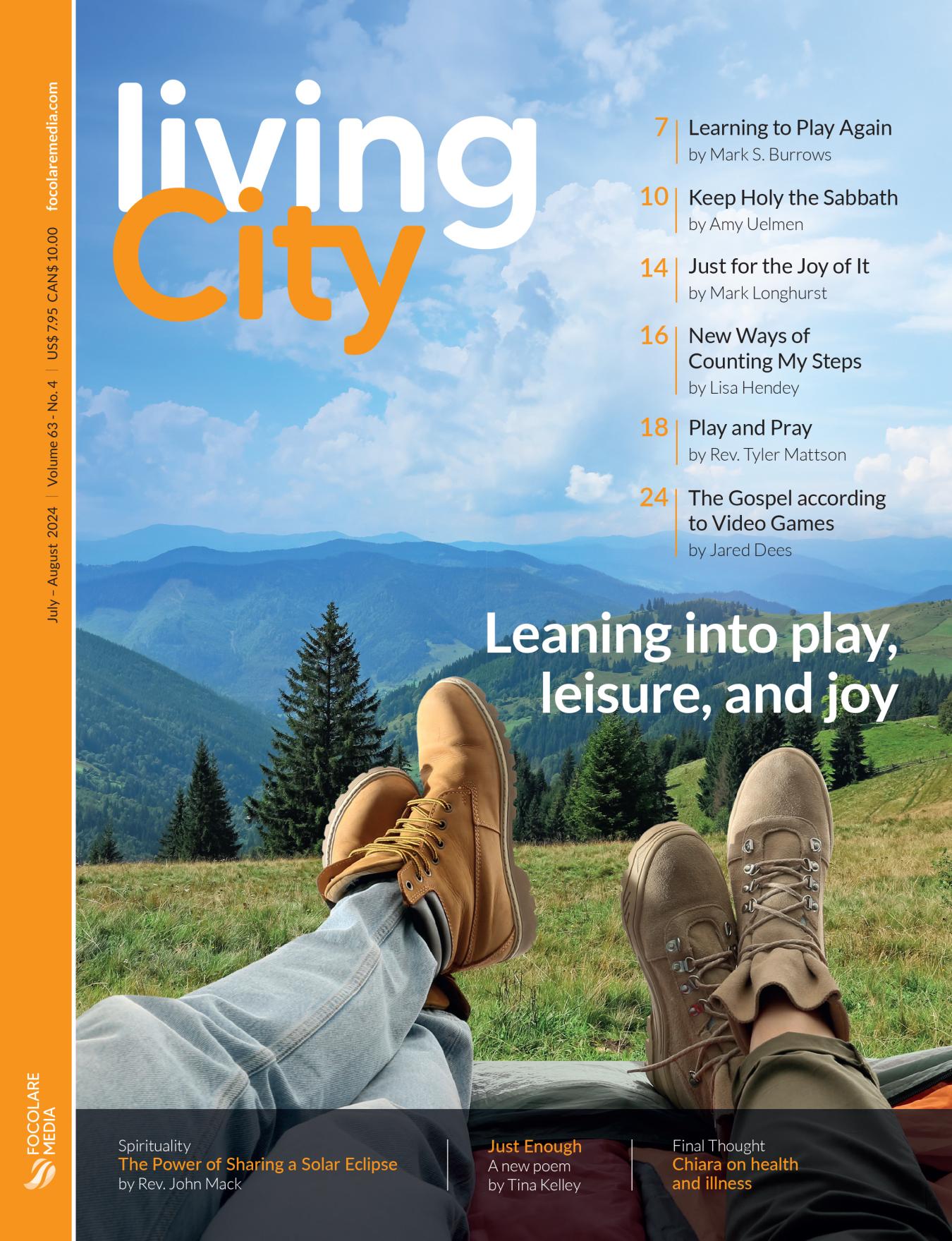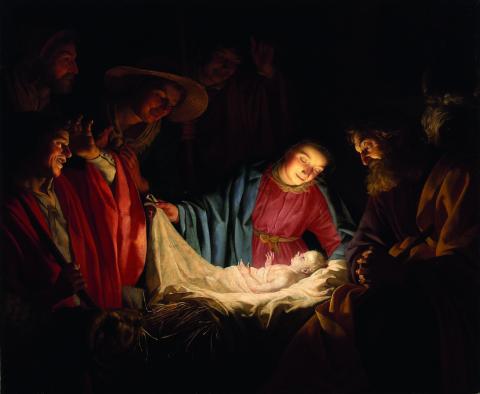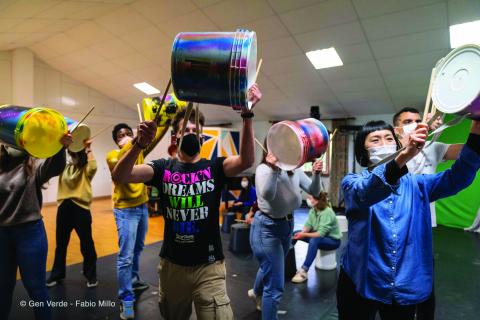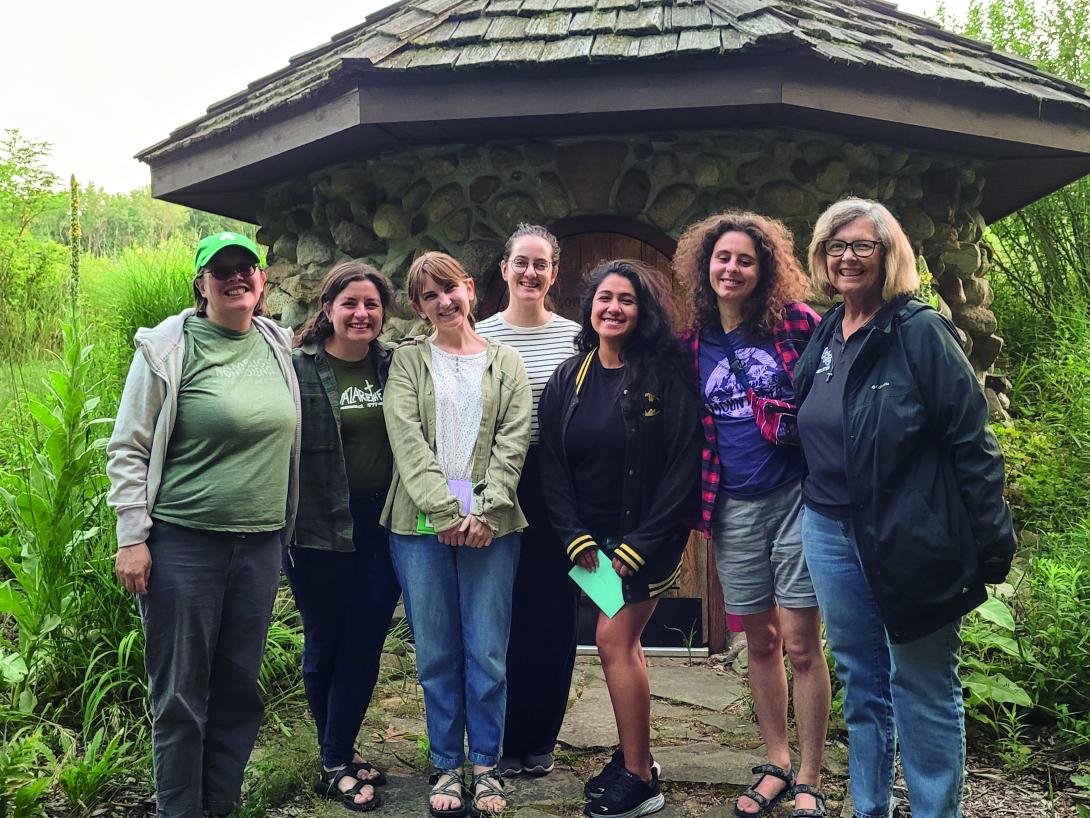
© Photo courtesy of Julia Walsh
For most of my adult life, I have lived in intentional community. I’ve shared a home and the rhythms of daily life with a variety of people who are committed to being more than roommates: we are committed to being a team who cares for each other and shares a joint purpose.
I’ve lived with fifteen different groups in small towns and large cities, and in a rural lakeside lodge at a retreat center. The communities have ranged from coops to convents with other Catholic Sisters. I’ve lived with people young and old in houses large and small, apartments, and in an ecovillage. I’ve played cards and board games with people triple my age. I’ve lounged in the living room and listened to others chat about their work. I’ve shared the mundane and the highlights of life with others, blessed by companions through crisis and celebration.
The Foundation for Intentional Community (ic.org) defines an intentional community as a “group of people who have chosen to live together or share resources on the basis of common values.” How people live together and share resources varies, yet cooperation and unity are the goals. The motives can be religious, social, or ecological. Typically, people are committed to intentional community because of a shared belief that humans are better together.
I don’t know what it is like to come home to a spouse and children after a busy workday, but I know the joy of coming home to adults I love and an evening of connection: a homecooked meal, communal prayer, and shared relaxation.
I know the reverence of the table. We gather to eat and talk about our days’ dilemmas. We share stories from our lives.
I feel grounded by the regular ritual of gathering in the living room for a house meeting, often after a meal. It is clarifying and helpful to talk through our shared calendar and the duties of cleaning, grocery shopping, cooking, and hospitality. Sometimes house meetings are boring, and the topics are mundane. Yet it’s healthy to hear everyone share opinions about dish soap and toilet paper, because opinions point to values, and remaining conscious of the values that inform our preferences and decisions can clarify our shared purpose.
House meetings also can deepen awareness and improve communication as I notice how passionate we become about shared schedules, finances, and responsibilities. We must show up to meetings agreeing to be open-minded, to be curious and caring. We navigate conflicts and feel our emotions rise. We try different communication systems and work to create helpful structures for ourselves. Charts hang on fridges and bulletin boards and we each grow to know what’s expected of us, how we are meant to pitch in and play a part. We take turns a lot.
We coordinate our calendars so we can decorate for the holidays and host celebrations. On birthdays decorations go up, cakes are baked, and songs are sung. No matter how busy we are, we find ways to have enjoy each other’s company: we go to plays and concerts, we eat out, make music and art, play games, and watch movies. We go on road trips to retreat centers and rest together in the woods. Through our joyful and restful actions, we re-create who we are and who we are becoming, communally.
* * *
When I was twenty, I lived abroad in South Africa and was assigned to live in an international student house where we shared grocery shopping, cooking, housekeeping, meals, and party hosting. I became seeped in a way of being that was more communal than what I had known in the U.S., and discovered it made more sense to me than what I had experienced before. Within a short time, I became convinced that it made more sense to be a committed member of a community than to go life alone, and this conviction determined the direction of my adult life. I was motivated to become a Catholic Sister, to live in intentional community. With others, I could do and have less; I could share and grow more.
In scripture, Christians are encouraged to share life with others. St. Paul encourages the early church to care for each other repeatedly as he emphasizes that everyone is a member of the body of Christ (1 Cor. 12). The Acts of the Apostles describes the earliest followers of The Way as community who “were together and had all things in common; they would sell their property and possessions and divide them among all according to each one’s need. Every day they devoted themselves to meeting together in the temple area and to breaking bread in their homes. They ate their meals with exultation and sincerity of heart, praising God and enjoying favor with all the people” (Acts 2:44-47). Part of the Christian mission is to build community and share our life together. One way to do this is to live with others.
For me, life lived in intentional community is also an environmentally conscious choice. Less resources are needed when a kitchen and living room are communal—in my current situation, we are seven adults who could be living alone, separately, and have seven different refrigerators, stoves, televisions, and couches. We consume less, we waste less. The more we share, the better our carbon footprint.
I also prefer to live with others because I appreciate the feeling of togetherness. I like coming out of my bedroom and quickly finding companions to cook, clean, pray, protest, and play with. Although I love solitude, I am committed to community because I know I’m healthier if my life contains structure and accountability. I’m glad I don’t live alone because I am more likely to eat well and clean up after myself if I’m sharing food and space.
Sometimes, I hear people say that living intentional community rubs off our rough edges; like gems each person becomes shinier as we deal with the challenges of conflict and the persistent demand to detach, compromise
The Bantu languages of Southern, Central and Eastern Africa have a word for humanity: ubuntu, meaning “I am because we are.” Centered in interdependence (versus independence) a person can only become who they are meant to be through relationship with others.
This matches my experience: because I live in intentional community people are holding up a mirror to me regularly, I see myself reflected back according to how others respond to, interact with, listen to—or ignore me. I come to know my weaknesses and strengths by how I find myself showing up and participating, by how I engage and disengage. Only through community with people who are different can I come to know and be my true self.
I am currently part of two intentional communities. I’m a member of the Franciscan Sisters of Perpetual Adoration, and I live in a mixed community called The Fireplace Community (www.thefireplacecommunity.org) in Chicago. At The Fireplace, another Franciscan Sister and I share a home and a mission with a vibrant group of artists, activists, and spiritual seekers. Centered in community, creativity, and contemplation we share our sacred space as a refuge with guests and retreatants. We gather weekly for house meetings and host dinners and prayer for the wider community twice a week.
The six of us who reside here span the generations. We work to share leadership and power and mutual aid. We aim to be a healthy community that is a warmly welcoming refuge for our neighbors and guests. We host informal gatherings and public events. We share our home with retreatants and those who need safe spaces for renewal. Over a recent span of two weeks, we hosted seven dinners, eight gatherings around the backyard firepit, two board game nights, four prayer services, two overnight retreatants and a half-day writers’ retreat. A lot is happening here!
Shared activity creates community, but so do shared values. Together we decide what structures and schedules will establish justice and balance. Together we create and share a mission and a home. We build more than a home, we create a container that connects others and contributes to the flourishing of whole humans who belong and have a purpose, who are cared for and sharing life. As we do, we learn from each other and become our true selves. We become more whole.






